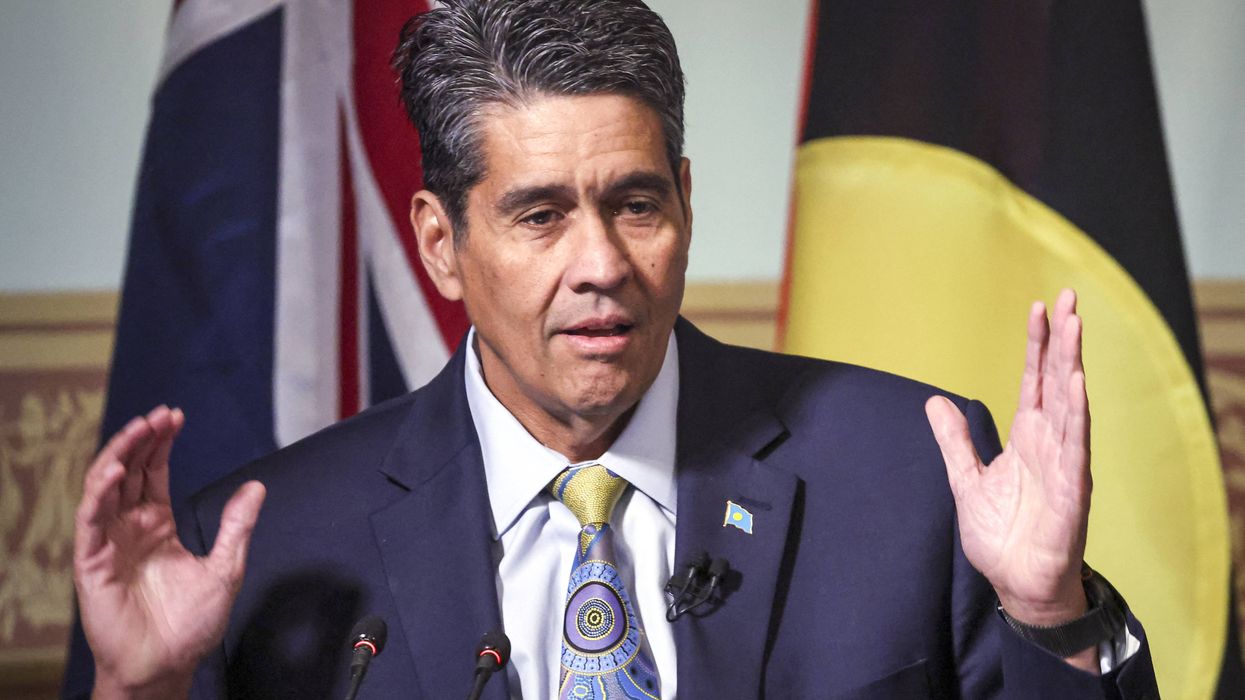July, 28 2010, 04:29pm EDT

Fair Sentencing Act An Important First Step But Sizeable Sentencing Gap Remains
The
House today passed a bill that would make much needed changes to
current cocaine sentencing laws and which will now go to President
Obama's desk for signature. The bill, the Fair Sentencing Act (S. 1789),
was unanimously passed by the Senate in March.
WASHINGTON
The
House today passed a bill that would make much needed changes to
current cocaine sentencing laws and which will now go to President
Obama's desk for signature. The bill, the Fair Sentencing Act (S. 1789),
was unanimously passed by the Senate in March.
As
originally introduced in the Senate, the bill would have completely
eliminated the discriminatory 100:1 disparity between crack and powder
cocaine sentencing under federal law. However, during the bill's markup
in the Senate, a compromise was reached with Republican Senate Judiciary
Committee members to reduce the disparity to an 18:1 ratio. The bill
also eliminates the mandatory minimum sentence for simple possession of
crack cocaine and comes at a time when the United States Sentencing
Commission is reconsidering the legitimacy and effectiveness of
mandatory minimum sentencing. The commission is expected to release a
new report on the subject in October.
originally introduced in the Senate, the bill would have completely
eliminated the discriminatory 100:1 disparity between crack and powder
cocaine sentencing under federal law. However, during the bill's markup
in the Senate, a compromise was reached with Republican Senate Judiciary
Committee members to reduce the disparity to an 18:1 ratio. The bill
also eliminates the mandatory minimum sentence for simple possession of
crack cocaine and comes at a time when the United States Sentencing
Commission is reconsidering the legitimacy and effectiveness of
mandatory minimum sentencing. The commission is expected to release a
new report on the subject in October.
"We
commend Speaker Pelosi and Congressmen Hoyer, Clyburn, Conyers and
Scott who, with the help of the Obama administration, helped this bill
pass its final hurdle," said Laura W. Murphy, Director of the American
Civil Liberties Union Washington Legislative Office. "Congress
has just struck down a mandatory minimum for the first time in history
and has sent the correct message that we cannot continue to use a
one-size-fits-all approach to sentencing. The
passage of the Fair Sentencing Act by both chambers of Congress is an
important first step toward finally eliminating the sentencing
disparity. However, the bill does leave in place a sizable sentencing disparity that we will continue to work to eliminate."
commend Speaker Pelosi and Congressmen Hoyer, Clyburn, Conyers and
Scott who, with the help of the Obama administration, helped this bill
pass its final hurdle," said Laura W. Murphy, Director of the American
Civil Liberties Union Washington Legislative Office. "Congress
has just struck down a mandatory minimum for the first time in history
and has sent the correct message that we cannot continue to use a
one-size-fits-all approach to sentencing. The
passage of the Fair Sentencing Act by both chambers of Congress is an
important first step toward finally eliminating the sentencing
disparity. However, the bill does leave in place a sizable sentencing disparity that we will continue to work to eliminate."
More
than two decades ago, based on assumptions about crack which are now
known to be false, heightened penalties for crack cocaine offenses were
adopted. Sentences for crack are currently equivalent to the sentences
for 100 times the amount of powder cocaine, and the impact falls
disproportionately on African-Americans. In recent years, a consensus
has formed across the political and ideological spectrum on the crack
and powder cocaine sentencing disparity issue with both Presidents
George W. Bush and Barack Obama urging reform.
than two decades ago, based on assumptions about crack which are now
known to be false, heightened penalties for crack cocaine offenses were
adopted. Sentences for crack are currently equivalent to the sentences
for 100 times the amount of powder cocaine, and the impact falls
disproportionately on African-Americans. In recent years, a consensus
has formed across the political and ideological spectrum on the crack
and powder cocaine sentencing disparity issue with both Presidents
George W. Bush and Barack Obama urging reform.
While the Fair Sentencing Act is a positive but incomplete step forward, it will fail to remedy
injustices of those who are already serving their sentences. For
example, the bill fails to address cases like that of Hamedah Hasan, a
mother and grandmother who is serving her 17th year of a 27-year federal
prison sentence for a first-time, nonviolent crack cocaine conviction.
Had she been convicted of a powder cocaine offense, she would be home by
now. However, under the new 18:1 ratio, her prison sentence will remain
unchanged because the Fair Sentencing Act does not retroactively amend
the prison time of those already serving inflated sentences. Hasan has
filed a petition with the Department of Justice's Office of the Pardon
Attorney asking that President Obama commute her remaining sentence. The
ACLU is representing Hasan.
injustices of those who are already serving their sentences. For
example, the bill fails to address cases like that of Hamedah Hasan, a
mother and grandmother who is serving her 17th year of a 27-year federal
prison sentence for a first-time, nonviolent crack cocaine conviction.
Had she been convicted of a powder cocaine offense, she would be home by
now. However, under the new 18:1 ratio, her prison sentence will remain
unchanged because the Fair Sentencing Act does not retroactively amend
the prison time of those already serving inflated sentences. Hasan has
filed a petition with the Department of Justice's Office of the Pardon
Attorney asking that President Obama commute her remaining sentence. The
ACLU is representing Hasan.
"It's
almost as hard to understand the logical basis for an 18:1 ratio as for
a 100:1 ratio. Where did they come up with that number? For me, it's
simple. My mom would be home with me and my sisters by now if she had
been convicted of a powder cocaine offense instead of a crack cocaine
offense," said Kasaundra Lomax, Hasan's daughter, the oldest of three.
"This new legislation won't bring her home any sooner, and while I am
happy it will help a lot of other people, my family and I are sad that
it won't help us."
almost as hard to understand the logical basis for an 18:1 ratio as for
a 100:1 ratio. Where did they come up with that number? For me, it's
simple. My mom would be home with me and my sisters by now if she had
been convicted of a powder cocaine offense instead of a crack cocaine
offense," said Kasaundra Lomax, Hasan's daughter, the oldest of three.
"This new legislation won't bring her home any sooner, and while I am
happy it will help a lot of other people, my family and I are sad that
it won't help us."
"Though
this legislation is long overdue, it still leaves Americans with a
sizable sentencing gap for the same drug. We must ensure that our laws
are based on facts and not prejudice," said Jennifer Bellamy, ACLU
Legislative Counsel. "Many whose lives have been affected by this
sentencing disparity will not feel justice, including Hamedah Hasan and
her family. The passage of this bill shows Congress understands that
reform is needed, but anything less than a fair 1:1 sentencing ratio
falls short of a system of justice which requires that all individuals
are treated equally. We hope that Congress, the courts and the president
will do more to eliminate a sentencing disparity that is patently
unjust and wholly unsupported by the facts."
this legislation is long overdue, it still leaves Americans with a
sizable sentencing gap for the same drug. We must ensure that our laws
are based on facts and not prejudice," said Jennifer Bellamy, ACLU
Legislative Counsel. "Many whose lives have been affected by this
sentencing disparity will not feel justice, including Hamedah Hasan and
her family. The passage of this bill shows Congress understands that
reform is needed, but anything less than a fair 1:1 sentencing ratio
falls short of a system of justice which requires that all individuals
are treated equally. We hope that Congress, the courts and the president
will do more to eliminate a sentencing disparity that is patently
unjust and wholly unsupported by the facts."
To learn more about the effort to commute Hamedah Hasan's sentence, go to: www.dearmrpresidentyesyoucan.org
The American Civil Liberties Union was founded in 1920 and is our nation's guardian of liberty. The ACLU works in the courts, legislatures and communities to defend and preserve the individual rights and liberties guaranteed to all people in this country by the Constitution and laws of the United States.
(212) 549-2666LATEST NEWS
'Unhinged' Trump Wishes 'Merry Christmas to All, Including the Radical Left Scum'
"Nothing more Christian than to be a hateful wretched fuck on Jesus’ birthday," quipped one critic.
Dec 25, 2025
In a message called typically on-brand by observers, US President Donald Trump wished "Merry Christmas to all"—including his political opponents, whom he described in decidedly unchristlike language.
"Merry Christmas to all, including the Radical Left Scum that is doing everything possible to destroy our Country, but are failing badly," Trump said Christmas Eve on his Truth Social network.
"We no longer have Open Borders, Men in Women’s Sports, Transgender for Everyone, or Weak Law Enforcement," the president added. "What we do have is a Record Stock Market and 401K’s, Lowest Crime numbers in decades, No Inflation, and yesterday, a 4.3 GDP, two points better than expected. Tariffs have given us Trillions of Dollars in Growth and Prosperity, and the strongest National Security we have ever had. We are respected again, perhaps like never before. God Bless America!!!"
While nothing new—Trump has used past Christmas messages to tell people he doesn't like to "go to hell" and "rot in hell"—observers, including some MAGA supporters, were still left shaking their heads.
"Radical Left Scum" 😂🤣😂🤣😂🤣Christmas greetings from a liar, traitor, pedophile, and overall shitstain upon society.
[image or embed]
— Bill Madden (@maddenifico.bsky.social) December 24, 2025 at 9:00 PM
"Nothing more Christian than to be a hateful wretched fuck on Jesus’ birthday!" liberal political commentator Dean Withers said on X.
Another popular X account posted: "A sitting president of the United States using Christmas Day to spew venom at fellow Americans he calls 'Radical Left Scum' isn’t just unpresidential—it’s unhinged, un-Christian, and utterly beneath the office."
"This is the behavior of a bitter, small man who can’t even pretend to unify for one holy day," she added. "Shameful. Disgraceful. Pathetic."
Keep ReadingShow Less
Palau Signs Controversial $7.5 Million Deal to Take 75 Trump Deportees
"What if we spent the $100,000 per person in America setting them up with housing assistance, healthcare, education, etc?" asked one critic.
Dec 25, 2025
Palau said Wednesday that it has agreed to take in up to 75 people deported from the United States during President Donald Trump's purge of unauthorized immigrants in exchange for millions of dollars in financial assistance—a move that has sparked considerable opposition among the Pacific archipelago nation's roughly 18,000 inhabitants.
The office of Palauan President Surangel Whipps Jr. announced a memorandum of understanding with the United States under which the country will receive $7.5 million in assistance in exchange for taking in 75 third-country deportees who cannot be repatriated to their countries of origin.
Earlier this week, US State Department Principal Deputy Spokesperson Tommy Pigott said the people who will be sent to Palau have “no known criminal histories," as is the case with the vast majority of unauthorized immigrants in the United States, who have committed no crime other than the mere misdemeanor of entering the country illegally.
However, Palauans have voiced concerns over US Secretary of State Marco Rubio's remarks during a Cabinet meeting earlier this year in which he said that, “We want to send some of the most despicable human beings—perverts, pedophiles, and child rapists—to your countries as a favor to us."
Whipps said Wednesday that the relocation plan involves “people seeking safety and stability."
“These are not criminals,” the president said during earlier debate on the proposal. “Their only offense was entering the United States illegally and working without proper permits.”
However, Palau's Congress and its influential Council of Chiefs have twice rejected the transfers.
Piggot's statement "highlighted US commitments to partner with Palau on strengthening the country’s healthcare infrastructure, increasing Palau’s capacity to combat transnational crime and drug trafficking, and bolstering Palau’s civil service pension system."
Palau, which was administered by the US from 1947-94 and is now associated with the United States under the 1994 Compact of Free Association, which guaranteed the country nearly $900 million economic aid over 20 years in exchange for exclusive US military access.
The country's foreign policy often tracks closely to that of the US. For example, Palau is sometimes among the handful of usually similarly small nations that vote along with the United States and Israel against United Nations resolutions condemning Israeli crimes or affirming Palestinian rights.
Other developing nations including Eswatini, Rwanda, South Sudan, and Uganda have also agreed to take in US deportees or are considering doing so.
Reactions to the US-Palau agreement drew criticism on social media, where one X user called the deal a "bribe" and another popular Bluesky account asked, "What if we spent the $100,000 per person in America setting them up with housing assistance, healthcare, education, etc?"
Keep ReadingShow Less
Trump 'Choosing From the War Crimes Menu' With 'Quarantine' on Venezuela Oil Exports
"Economic strangulation is warfare and civilians always pay the price," lamented CodePink.
Dec 25, 2025
President Donald Trump has ordered US military forces to further escalate their aggression against Venezuela by enforcing a "quarantine" on the South American nation's oil—by far its main export—in what one peace group called an attempted act of "economic strangulation."
"While military options still exist, the focus is to first use economic pressure by enforcing sanctions to reach the outcome the White House is looking [for]," a US official, who spoke on condition of anonymity, told Reuters.
The move follows the deployment of an armada of US warships and thousands of troops to the region, threats to invade Venezuela, oil tanker seizures off the Venezuelan coast, Trump's authorization of covert CIA action against the socialist government of Venezuelan President Nicolás Maduro, and airstrikes against boats allegedly running drugs in the Caribbean Sea and Pacific Ocean that have killed more than 100 people in what critics say are murders and likely war crimes.
This, atop existing economic sanctions that experts say have killed tens of thousands of Venezuelans since they were first imposed during the first Trump administration in 2017.
"The efforts so far have put tremendous pressure on Maduro, and the belief is that by late January, Venezuela will be facing an economic calamity unless it agrees to make significant concessions to the US," the official told Reuters.
The official's use of the word "quarantine" evoked the 1962 Cuban Missile Crisis, an existential standoff that occurred after the John F. Kennedy administration imposed a naval blockade around Cuba to prevent Soviet nuclear missiles from being deployed on the island, even as the US was surrounding the Soviet Union with nuclear weapons.
"This is an illegal blockade," the women-led peace group CodePink said in response to the Reuters report. "Calling it a 'quarantine' doesn’t change the reality. The US regime is using hunger as a weapon of war to force regime change in Venezuela. Economic strangulation is warfare and civilians always pay the price. The US is a regime of terror."
Critics have also compared Trump's aggression to the George W. Bush administration's buildup to the invasion and occupation of Iraq, initially referred to as Operation Iraqi Liberation (OIL). But unlike Bush, Trump—who derided Bush for not seizing Iraq's petroleum resources as spoils of war—has openly acknowledged his desire to take Venezuela's oil.
"Maybe we will sell it, maybe we will keep it,” he Trump said on Monday. “Maybe we’ll use it in the strategic reserves. We’re keeping the ships also.”
On Wednesday, a panel of United Nations experts said that the US blockade and boat strikes constitute "illegal armed aggression" against Venezuela.
Multiple efforts by US lawmakers—mostly Democrats, but also a handful of anti-war Republicans—to pass a war powers resolution blocking the Trump administration from bombing boats or attacking Venezuela have failed.
The blockade and vessel seizures have paralyzed Venezuela's oil exports. Ports are clogged with full tankers whose operators are fearful of entering international waters. Venezuela-bound tankers have also turned back for fear of seizure. Although Venezuelan military vessels are accompanying tankers, the escorts stop once the ships reach international waters.
According to the New York Times, Venezuela is considering putting armed troops aboard tankers bound for China, which, along with Russia, has pledged its support—but little more—for Caracas.
Keep ReadingShow Less
Most Popular


